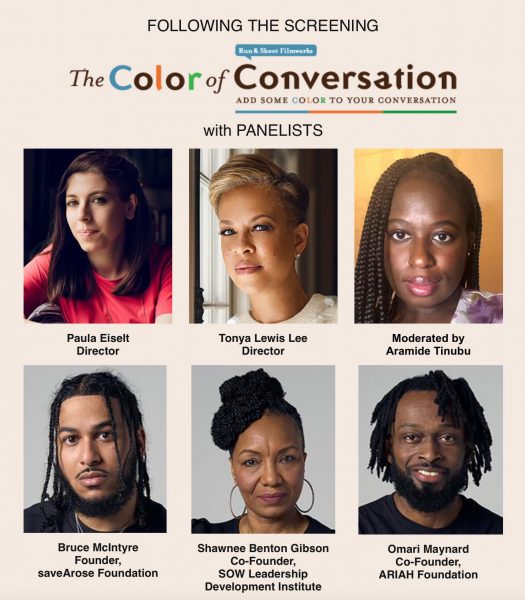
- Film
Docs: “Aftershock” – Black Maternity Crisis in the U.S. Shown at MVAAFF
“In this state, Black women represent 10 percent of the births but we’re 20 percent of the deaths. And Tulsa is one the worst places in the country to have a baby. I didn’t know,” Felicia Ellis of Oklahoma, one of the women featured in the new documentary Aftershock, says as she prepares for a pre-natal doctor’s appointment.
“I called my mom crying one morning because the statistics of being Black having a baby in America like hit me. Really, I hadn’t thought about it until Serena Williams talked about her birth experience and she’s, like, the best athlete in the world. And she had to make them listen to her about her blood clots. And then when I started dealing with myself… I was like this is a big deal, a Black woman having a baby is like a Black man at a traffic stop with the police.”
Ellis’ searing reflection is one of many gut-wrenching moments in the weighty Hulu film, which currently boasts a Rotten Tomatoes score of 100%. An Onyx Collective and ABC News project, Aftershock effectively personalizes statistics that have been all too easy for the general public and lawmakers to discount.
According to the CDC, black women are three times more likely to die from a pregnancy-related cause than white women. Multiple factors contribute to these disparities, such as variation in quality healthcare, underlying chronic conditions, structural racism, and implicit bias.
Aftershock personalizes these confounding and lopsided numbers by illuminating the systematic and interpersonal racism that put Black women in unnecessary danger. From certain hospitals’ financial incentivization to perform excessive C-sections to the harmful biases that often prevent people who live in certain low-income neighborhoods from receiving timely and respectful care, Aftershock shows how counterintuitive it is to see any family as expendable. To underscore the gravity of the situation, the audience also gets a lesson on the racist origins of gynecology in the United States and how this history still bleeds into everyday care for Black women, who are often expected to handle unbearable pain.
Speaking at Sundance, director and producer Paula Eiselt (93Queen, Priscilla) said she felt called to illuminate the issue.
“I knew that as an artist, if I wanted to help shed light on the story and the work that was being done, centering Black women was the only way to do that. And I say it is the only way. It doesn’t work any other way. That being said, I always knew that I needed a partner grounded in the community. As a white person, I cannot tell the story alone. So, I was looking for a partner from day one. I pitched the topic and the story to Concordia Studio, received development funding and support to start researching and filming. And on one of the very first shoots of that process, I literally bumped into Miss Tonya Lewis Lee. And I was so excited to meet her, and it was a match, and here we are sitting two years later at Sundance.”
Lee, a known advocate for women and infant health, co-produced and co-directed the film. This was a selling point for Bruce McIntyre to participate in the film. He lost his 26-year-old wife Amber Rose Isaac to medical incompetence.
“Once I found out that Paula was a white woman, I had to pump my brakes a little bit and really think about it. And then whenever he was telling me that Tanya was involved as well, I was like, ‘Oh, Spike Lee’s wife. Okay.’ Because I was just so familiar with their work and their narrative for the Black and brown communities, and that’s something that I’ve always looked up to growing up. And I felt like it was aligned. And then once I really got to sit down and talk with them both, I got to understand Paula’s story and what the humanitarian she is, and really just understand these two and their narrative and their goals for the film and how it would amplify and highlight our work, especially, the legacies of our family.”
The film effectively pays tribute to Isaac and Shamony Gibson, another young mother taken away from her children, her mother Shawnee Benton Gibson, her bereaved partner, Omari Maynard, and her community. In candidly baring the collateral damage of a sudden, preventable death, Aftershock underlines the strong bonds that exist in Black families and between Black women and the men who love them.
Aftershock first premiered at the 2022 Sundance Film Festival (where it won the U.S. Documentary Special Jury Award) and most recently screened at the Martha’s Vinyard African-American Film Festival. The film is now available to stream on Hulu. More information on the American maternity mortality issue can be found online at aftershockdocumentary.com.

